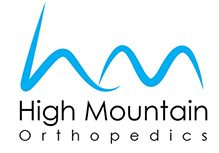The rotator cuff is the set of muscles and tendons that act together to form a cuff, which holds the shoulder in place and enables it to move freely in all directions. While the shoulder is one of the most mobile joints, it is also fairly weak, especially when exposed to a great deal of stress. Those who play sports, including baseball, football, tennis players as well as those whose fitness routines utilize heavy lifting can be more exposed to developing a rotator cuff tear due to wear and tear on the joints of the shoulder. However, the rotator cuff can also be injured due to a sudden force or trauma such as falling on their shoulder or using their arm to prevent a fall.
For many, it may be difficult to differentiate whether shoulder pain is the result of overexertion and soreness, or a more severe injury. Below are 3 common indications of a rotator cuff injury.
3 Common Symptoms Associated with Torn Rotator Cuff
1. Pain. Naturally, those with torn rotator cuffs will experience pain and is most often present in the front of the shoulder and can radiate through the arm. This pain may increase with activity or when laying on the affected side The level of pain that one may feel depends a great deal on how severe the tear actually is.
2. Decreased Strength and Inability to Perform Daily Tasks. A rotator cuff tear is a disruptive injury that may also prevent patients from carrying on with their daily tasks, especially considering that they may have a hard time trying to move the shoulder. This can include tasks such as carrying objects or raising the arm above the head. This pain and limitation in mobility may make it difficult to perform job functions especially for those in the filed of construction, painting and other manual labor.
3. Abnormal Test Results. During an initial physical exam, an orthopedic specialist may try to identify the main cause of pain by moving the patient’s arms in various positions. If the orthopedic specialist suspects and underlying injury the physical exam may be followed by a series of additional tests, including MRI scans or X-rays. Abnormal test results are the tool that often offers the most accurate information on the severity of the injury.
What Should You Do If You Think You Have a Tear?
If you notice any of the symptoms listed above, it is best to consult an orthopedic specialist as soon as possible. A specialist will recommend the best course of action, which may revolve around conventional treatment (resting the joint, anti-inflammatory medication and physical therapy). In other instances, a surgical intervention may be recommended if what is known as a “full thickness tear” is present.
If surgery is recommended, most rotator cuff tears can be treated using an arthroscopic procedure. This is usually an outpatient procedure that delivers excellent results and only requires a small incision. In most cases, postoperative recommendations involve physical therapy, prescribed to help the entire arm recover its strength and mobility.
High Mountain Orthopedics specializes in bone, joint and muscle injuries, including shoulder injuries. Dr. William Matarese and Dr. Tony Wanich have over 25 years of combined experienced treating orthopedic and sports injuries. Our practice uses a multi-disciplinary approach that includes physical therapy and activity modification. If surgery is necessary, our team utilizes the latest advancements in Minimally Invasive and Arthroscopic procedures to expedite the healing process. If you are suffering from a bone, joint or muscle injury – contact our offices today! We have locations in Wayne, Paramus and Englewood, NJ.

